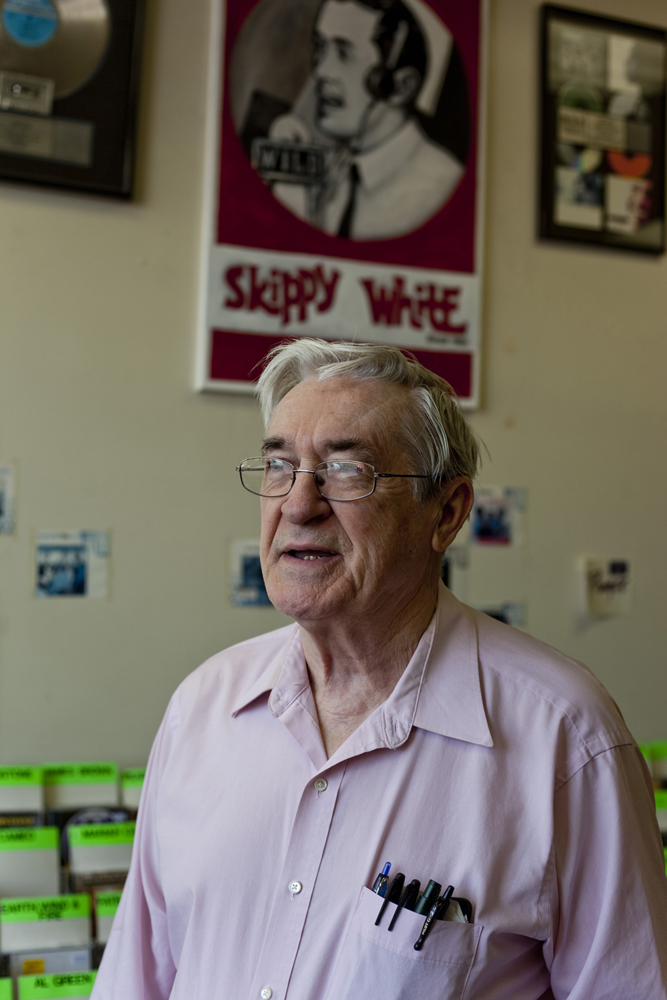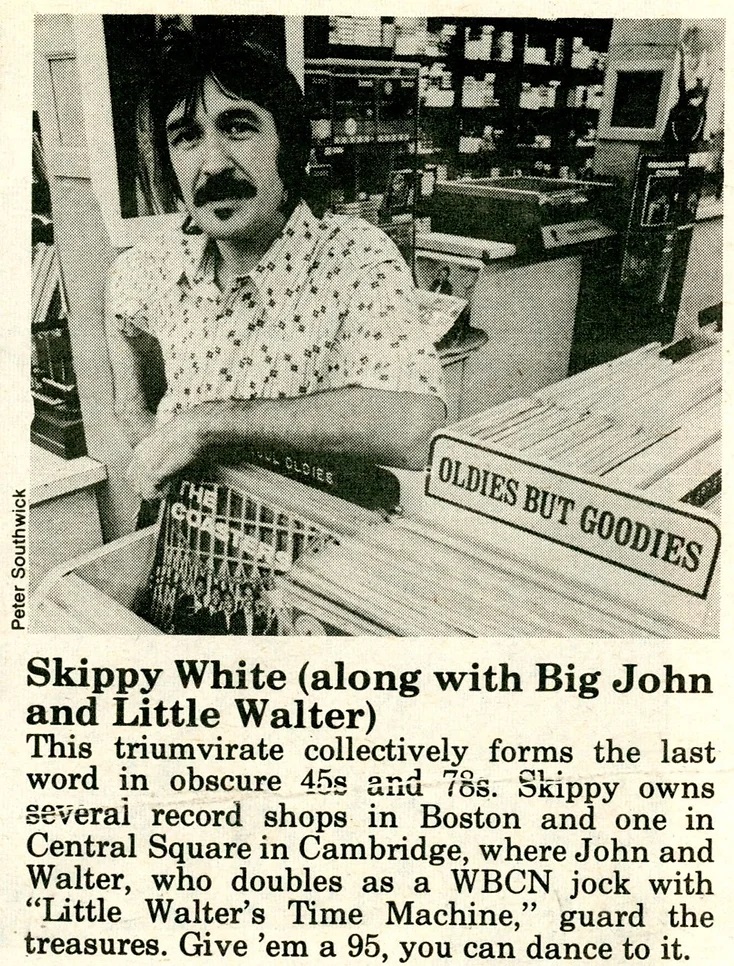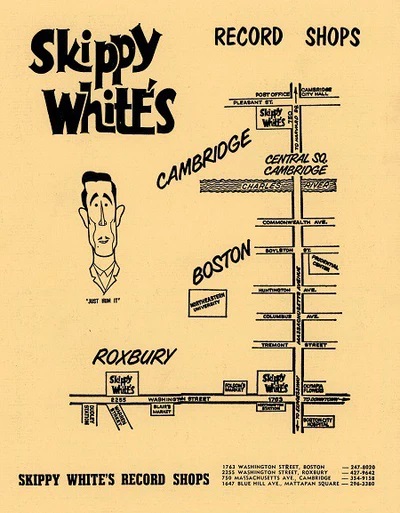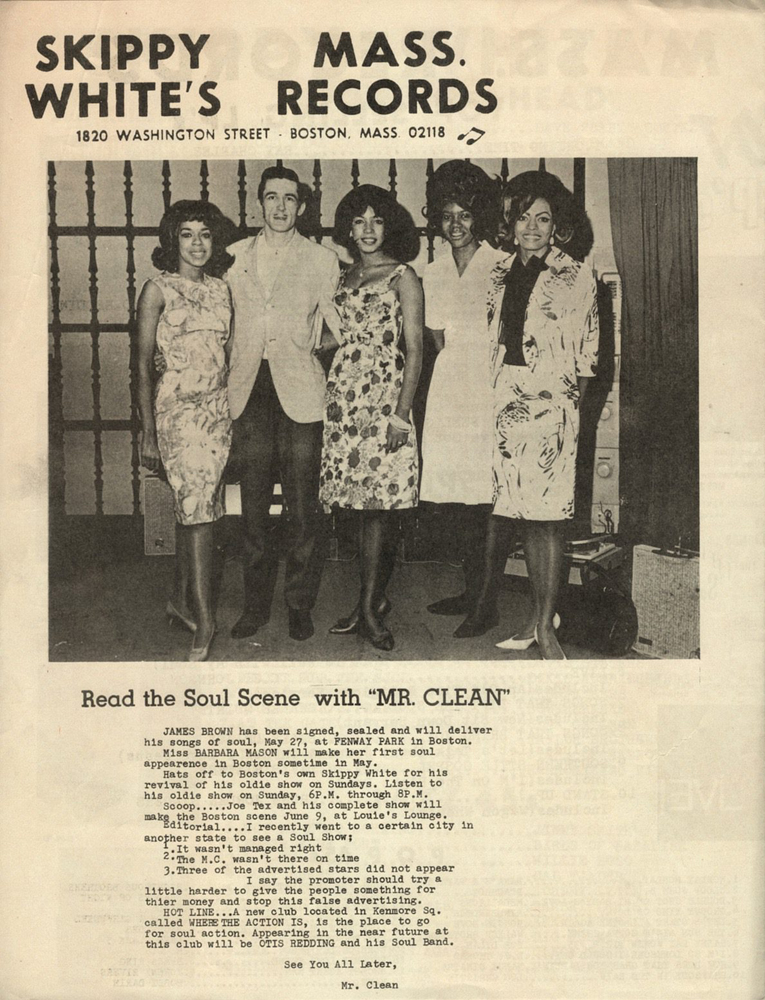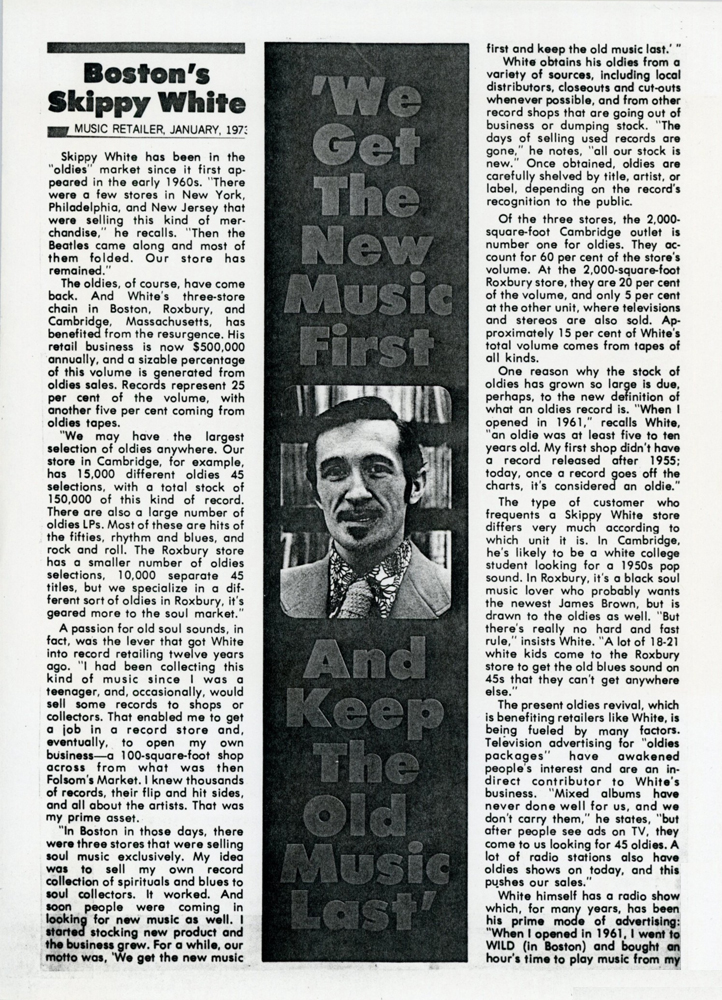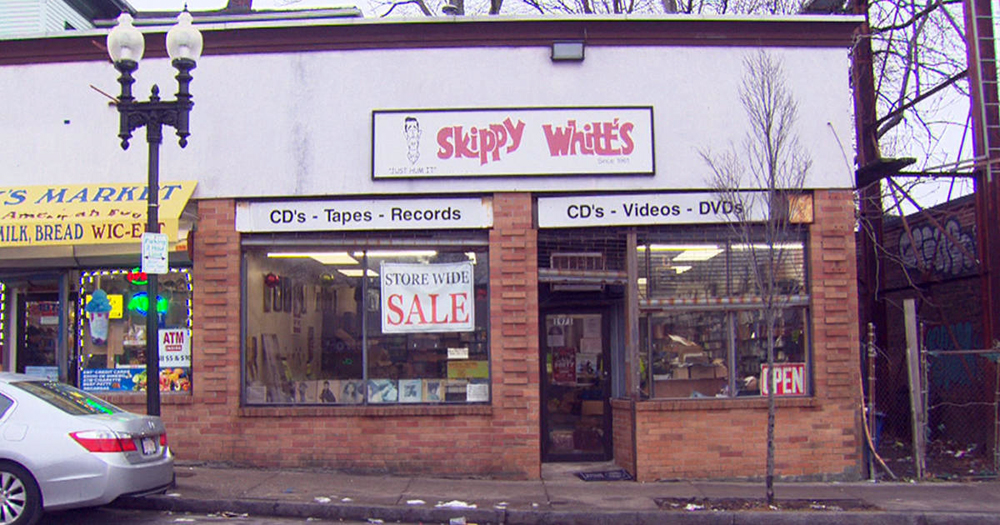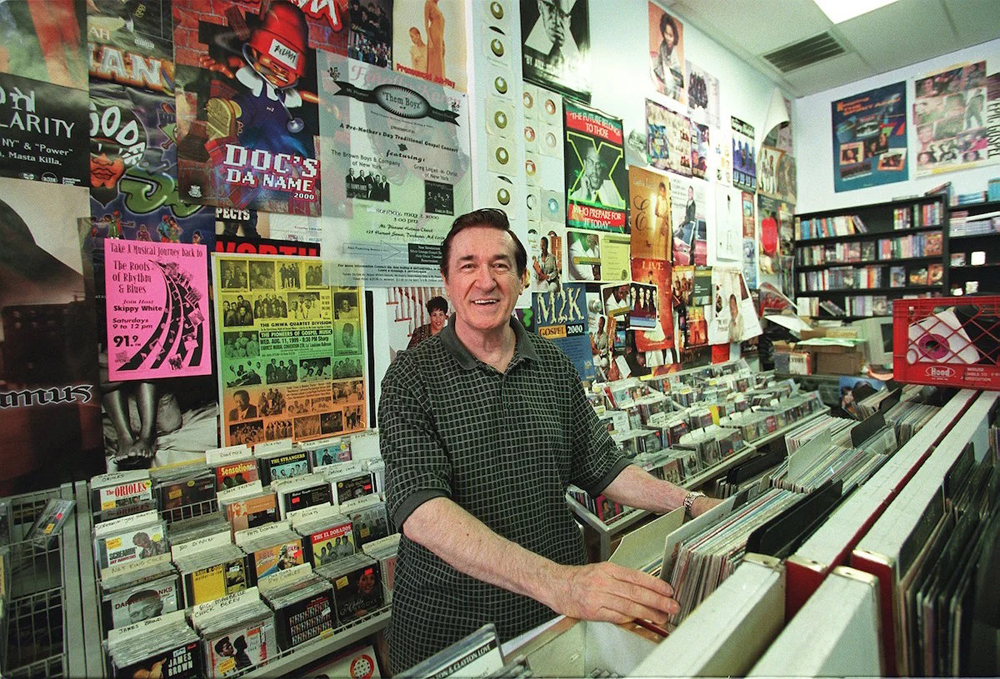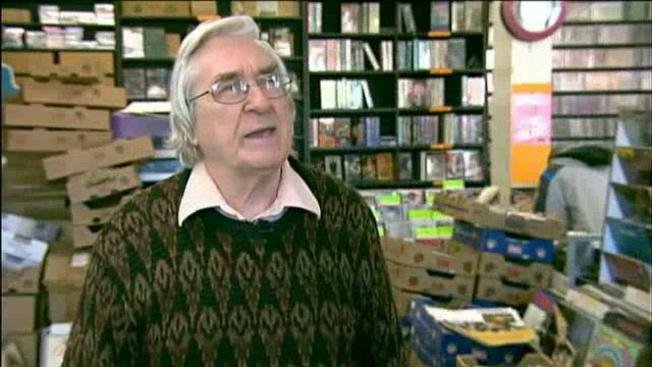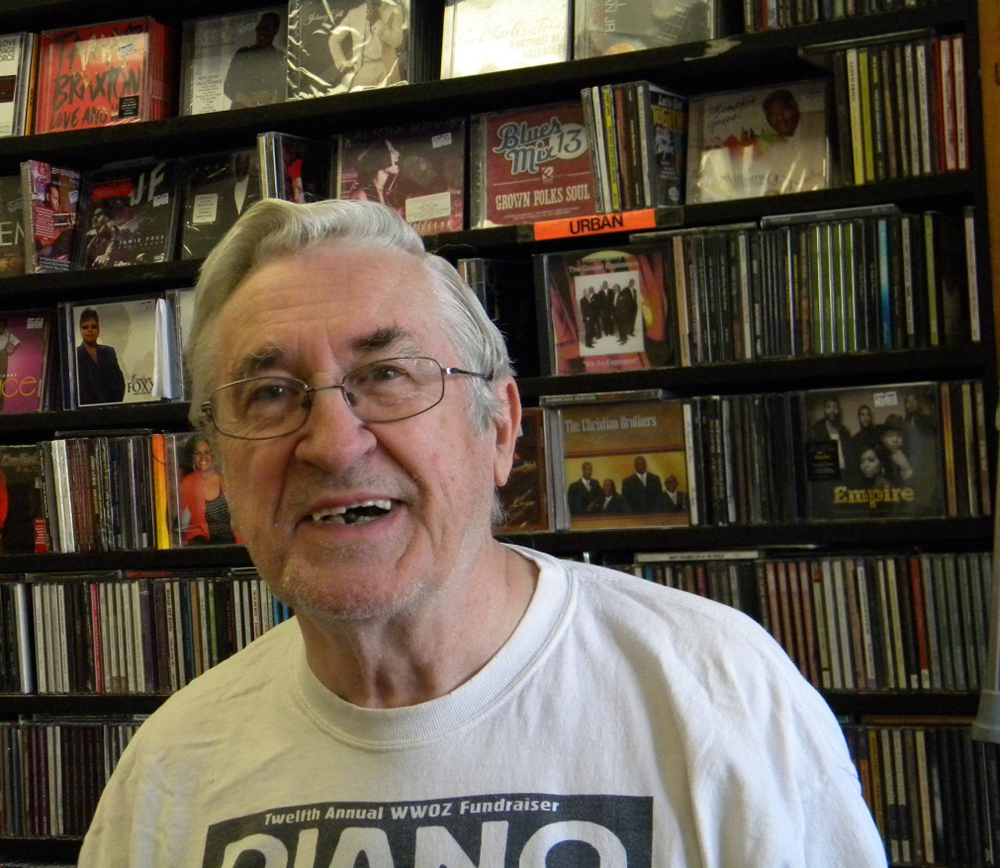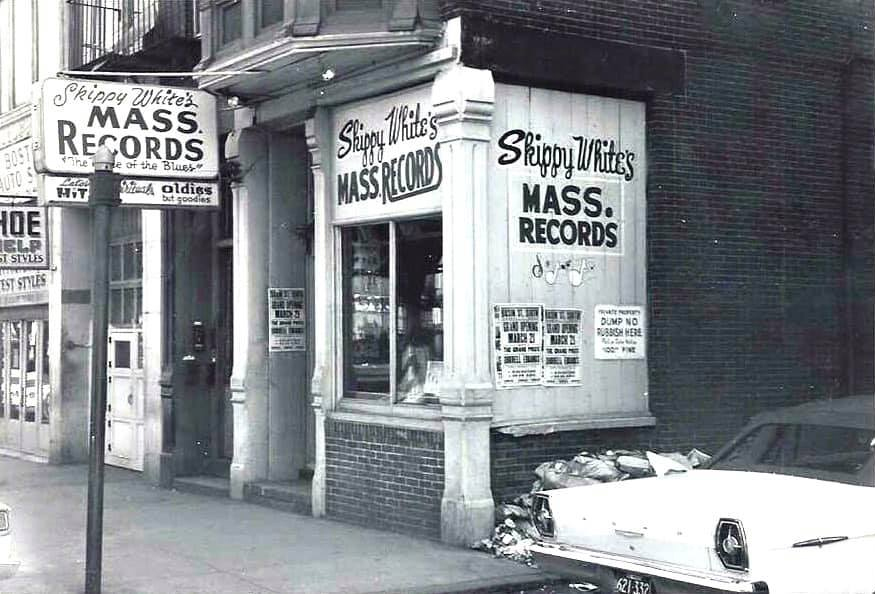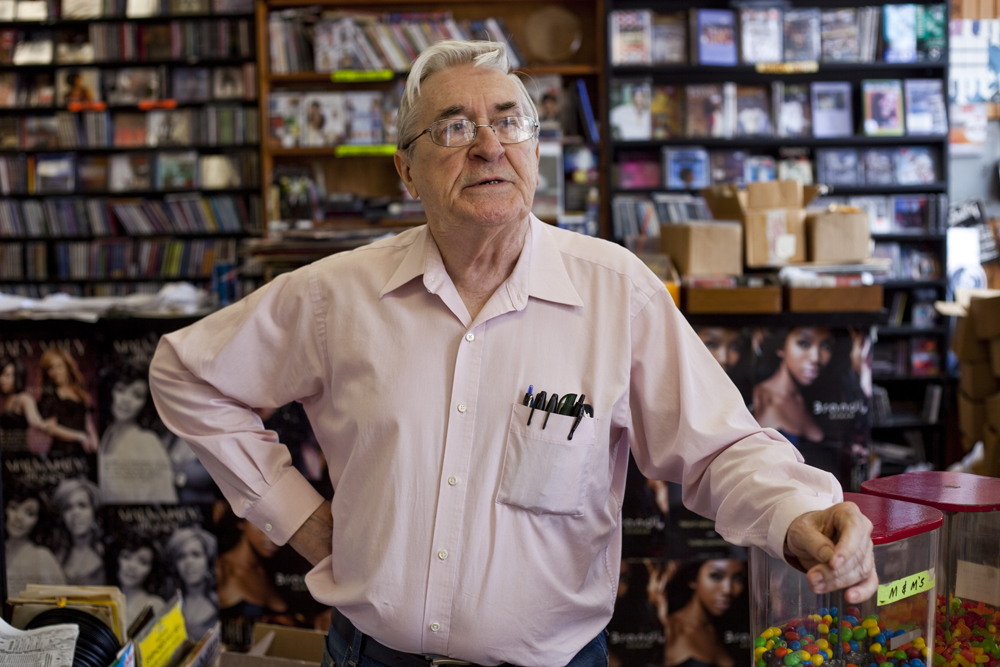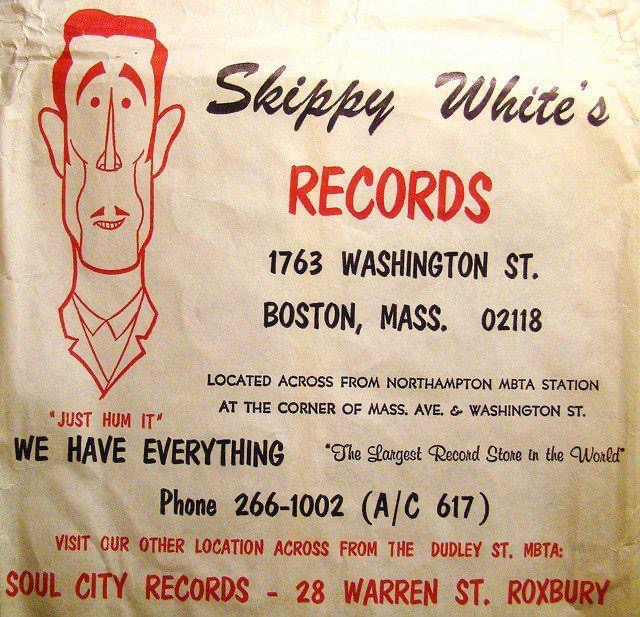Skippy White
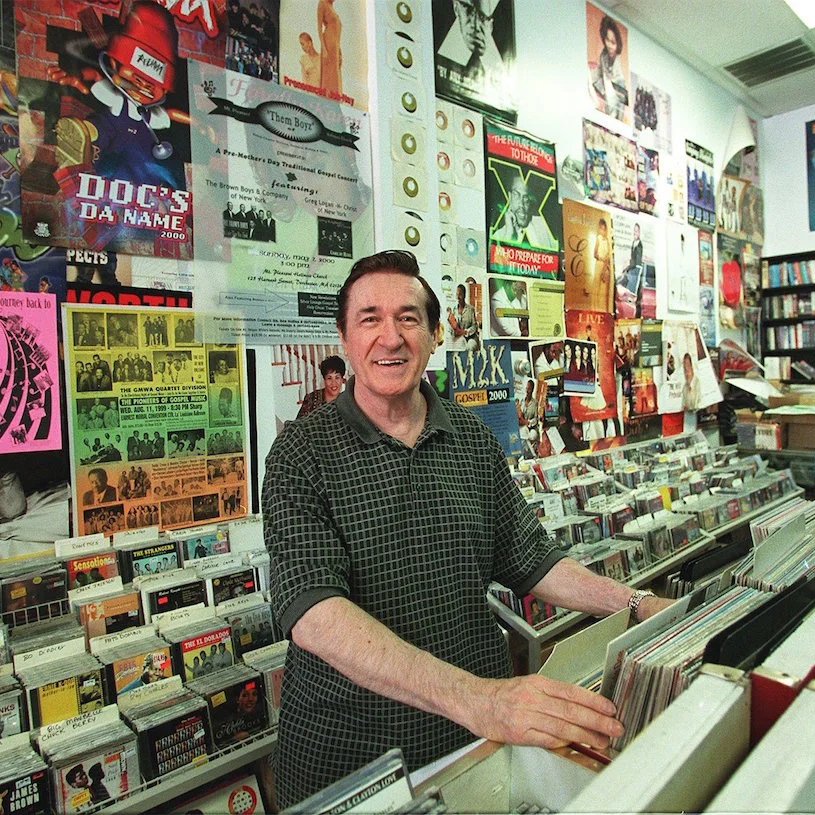
Skippy White
The name Fred LeBlanc may not sound familiar to most around the greater Boston area, but his adopted radio born namesake Skippy White would most likely ring a bell. While he may be remembered as a disc jockey on WILD, he’s certain known for his record stores and encyclopedic knowledge of R&B and blues, not to mention the vast collection of music that he retailed for over 50 years.
Skippy White was born in 1936 and grew up in Waltham, Massachusetts with the music of the 1950s. He was not particularly enamored with the music of his youth, however, and sought out a different kind of sound and feel from what he heard on the radio at the time. In his own words: “In 1953, I was tuning the dial on my radio and suddenly found WBMS, Symphony Sid was the deejay. He was playing The Orioles’ ‘Crying in the Chapel.’ I was floored!”
Record collecting, Smilin’ Jack’s College Music Shop, WILD
White started collecting records from a variety of genres and fell in love with R&B, gospel and blues along with the artists that sang and played the music. Most white kids like him were not collecting records by R&B artists at the time, but White knew what he loved and wanted to hear and collect whatever he could get his hands on. Due to lack of space in his family’s home, at times he kept part of his collection in the trunk of his car.
In the early ‘60s, while attending Boston University, White lost his day job, which forced him to drop out, an event that changed the direction of his life for good. Consequently, he landed a job at Smilin’ Jacks’ College Music Shop on Massachusetts Avenue in Boston, which became the foundation of his future life as a music retailer.
The desire to play music – not just sell it – is what lured him toward radio and inspired him to apply for a disc jockey job at WILD in 1961. White managed to talk WILD management into giving him a two-hour R&B show on Saturday that eventually aired Sunday as well; it was around this time that he changed his on-air handle from Fred LeBlanc to Skippy White (“Leblanc” meaning “white” or “the white” in French) and dropped out of BU. Over the years, the popularity of the music White played helped turn WILD into the all-Black-music-formatted station it became.
Mass Records, Skippy White’s
The real benefit to his deejay gig was that he could play the music he loved, and that sparked the idea of opening his own record store. He named him first shop, located at 1820 Washington Street in Boston, Mass Records – The Home of the Blues. Being able to play and expose listeners to the music he sold was instrumental to the shop’s success, so much so that White opened a second store in 1962, naming it Skippy White’s after his nom de radio, and customers came into the store wanting to meet the man they heard on WILD.
Both shops featured music available nowhere else in Boston or elsewhere in the area and they became the first stores in town to sell The Sugar Hill Gang’s “Rapper’s Delight” when it was released in September 1979. White’s customers knew if they asked for something, he’d find a way to get a copy of it for them. The shops moved to different locations many times over the years, with the final Skippy White’s storefront at 1971 Columbus Avenue (in Egleston Square) lasting from 1992 until January 2021, when 84-year-old White shut the doors once and for all.
Unique product, Unparalleled knowledge
All the relocations aside, what never changed was the uniqueness of the product and the unparalleled knowledge of the music historian and owner. The stores were there amidst the race riots in Boston in 1967/68 and the assassination of Martin Luther King Jr. in April 1968, during with time White always remained a respected presence as a white proprietor in the city’s predominately Black neighborhoods.
Honored as a community hero by the African American Ball of Boston in 2014, White’s ultimate focus, passion and mission, simply put in his own words, has always been “to hip you to what’s old, sweet, swingin’ and blue and gospel too.” Nearly six decades in, I think it is safe to say: mission accomplished.
(by Mark Turner)
- Skippy White on the decades he brought R&B and soul music to Boston's radio waves - WBUR
- Skippy White has been selling records in Boston for nearly six decades. But it’s time to close up shop, he says. - Boston.com
- Hundreds pay tribute to Skippy White - Bay State Banner
- How Skippy White Built Boston’s Soul Scene - Nodepression.com

